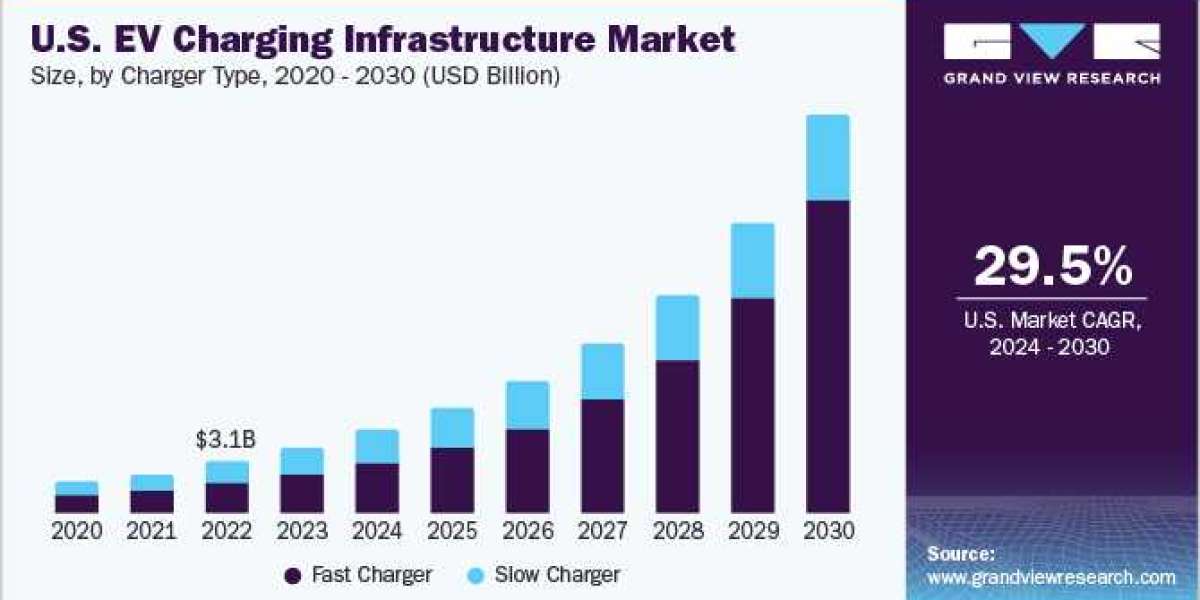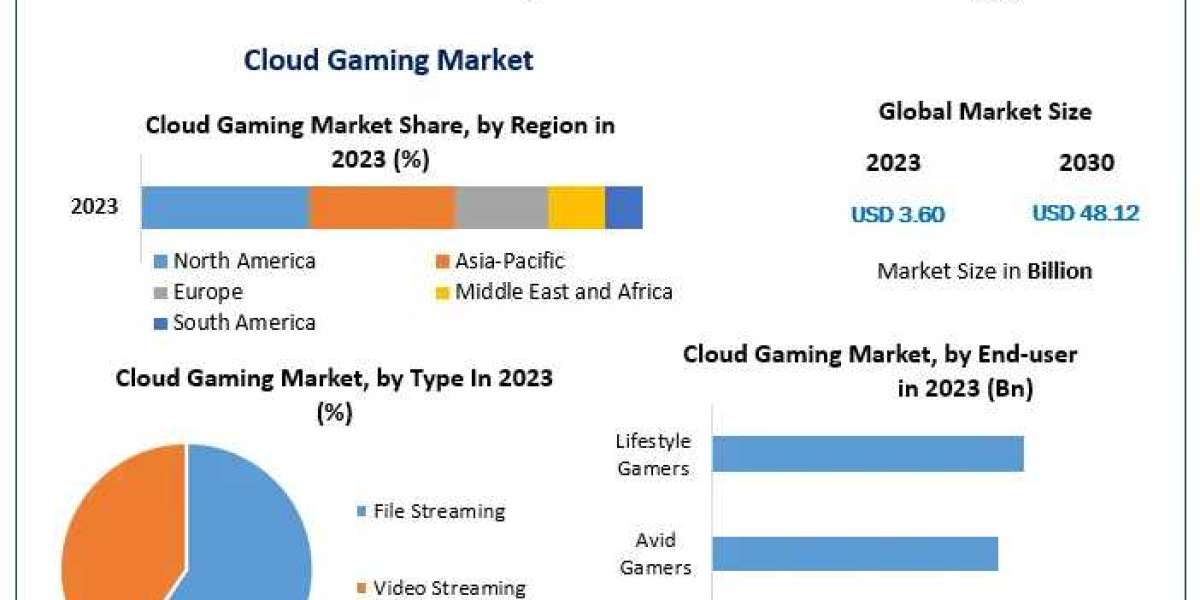The electric vehicle (EV) charging infrastructure market is anticipated to witness an upward growth curve in the near future. This growth can be attributed to the global concern about climate change and the requirement for eco-friendly alternatives, which have led consumers to adopt electric vehicles. Electric vehicles have approximately zero percent CO2 emissions and are increasingly reducing the dependence on fossil fuels. The increasing adoption of electric vehicles worldwide has led to a significant increase in the requirement of charging infrastructure needed for electric vehicles, which in turn is fueling the growth of the market for EV charging infrastructure.
The market is further boosted by the growing affordability of lithium-ion batteries, making EVs a more accessible and attractive choice to a wider range of population. Economic incentives offered by various governments worldwide are likely to be a major driving factor in the EV charging infrastructure landscape. Government regulations and tax exemptions are playing an important role in promoting EV adoption, which in turn is driving the demand for EV charging infrastructure solutions.
Access the Electric Vehicle (EV) Charging Infrastructure Market Size, Share Trends Analysis Report 2024-2030, published by Grand View Research
According to a new report by Grand View Research Ltd, the global market for EV charging infrastructure was estimated at USD 25.83 billion in 2023 and is projected to grow at a CAGR of 25.4% from 2024 to 2030.
Types of Charging Technologies
The technologies involved in EV charging infrastructure solutions are in an evolving stage. There are basically three types of EV charging categories:
- Level 1 Charging: This is the slowest and simplest form of charging. It is done using a 120-volt AC outlet, the same as a standard household outlet in the US. This charging is convenient as it does not require any additional hardware equipment or costs. It may take up to 12 hours to charge an EV.
- Level 2 Charging: This type charges the EV faster than Level 1 charging. It uses a 240-volt AC supply to charge an EV battery in a few hours. This is the most common type of public and home charging and is compatible with all EVs.
- DC Fast Charging (DCFC) or Level 3 Charging: The DCFC is the fastest to charge an EV battery to 80% in as little as 30 minutes. This technology, although fast, requires additional costly and complex equipment.
- Wireless Charging: This technology is still in its nascent stage, and if implemented successfully, it can charge EVs without any connectors or while driving on roadways.
Developments/Innovations in the EV Charging Infrastructure Industry
With the potential growth of the EV market, the demand for faster and more convenient charging options is driving the development of more Level 2 and DCFC stations. Many electric vehicle charging infrastructure providers are innovating to enhance their offerings. For example, Leviton Manufacturing Co., Inc., in January 2023, planned to launch a new EV Series of Level 2 charging stations. These stations, available in 32-, 48-, and 80-amp versions, will be compatible with the My Leviton app and designed to charge all EV models in North America efficiently.
The electric vehicle charging infrastructure market is witnessing many innovations, which also can enhance and improve the existing charging technologies. The integration of on-site energy resources and smart energy management systems is an important development in this regard. This innovation allows for the optimization of energy usage and cost efficiency, making EV charging more sustainable and accessible. The shift of charging infrastructure operators to Open Charge Point Protocol (OCPP) 2.0.1 is also noteworthy, as this protocol tries to standardize the communication between EV charging stations and management systems, which can ensure better interoperability.
Order Your Sample Copy of the Electric Vehicle (EV) Charging Infrastructure Market Size, Share Trends Analysis Report By Charger Type, By Connector, By Level Of Charging, By Connectivity, By Application, By Region, And Segment Forecasts, 2024 - 2030
The bidirectional charging technology is another revolutionary step in the EV charging solution. This technology allows EVs not only to draw power from the grid but also to supply electricity back to it, which effectively makes EVs into mobile energy storage units. This technology can enhance grid stability and promote the use of renewable energy sources. Furthermore, wireless EV charging is moving from early adoption to roadway trials, where charging is seamless and integrated into the driving experience.
A few of the key players in the EV charging infrastructure market include bp pulse; Tesla, Inc.; Chargepoint Inc.; and ABB Ltd. Conventional automotive manufacturers such as Kia Motors, Volvo, Ford, and Mercedes-Benz are also partnering with charging infrastructure providers to ensure convenient access to charging stations for their customers using their new EV variants. Companies such as Ecotap, Delta Electronics, and Enel X are looking forward to the development of solar-powered electric vehicle charging stations, which may be a shift towards more sustainable energy sources.
In Conclusion
These developments indicate a dynamic market that is rapidly adapting to the growing demand for electric vehicles and the requirement for faster, more cost-effective, and easily available charging solutions.
About Grand View Research
Grand View Research, U.S.-based market research and consulting company, provides syndicated as well as customized research reports and consulting services. Registered in California and headquartered in San Francisco, the company comprises over 425 analysts and consultants, adding more than 1200 market research reports to its vast database each year. These reports offer in-depth analysis on 46 industries across 25 major countries worldwide. With the help of an interactive market intelligence platform, Grand View Research helps Fortune 500 companies and renowned academic institutes understand the global and regional business environment and gauge the opportunities that lie ahead.
Contact:
Sherry James
Corporate Sales Specialist, USA
Grand View Research, Inc.
Phone: 1-415-349-0058
Toll Free: 1-888-202-9519
Email: sales@grandviewresearch.com
Web: https://www.grandviewresearch.com/sector-reports-list



